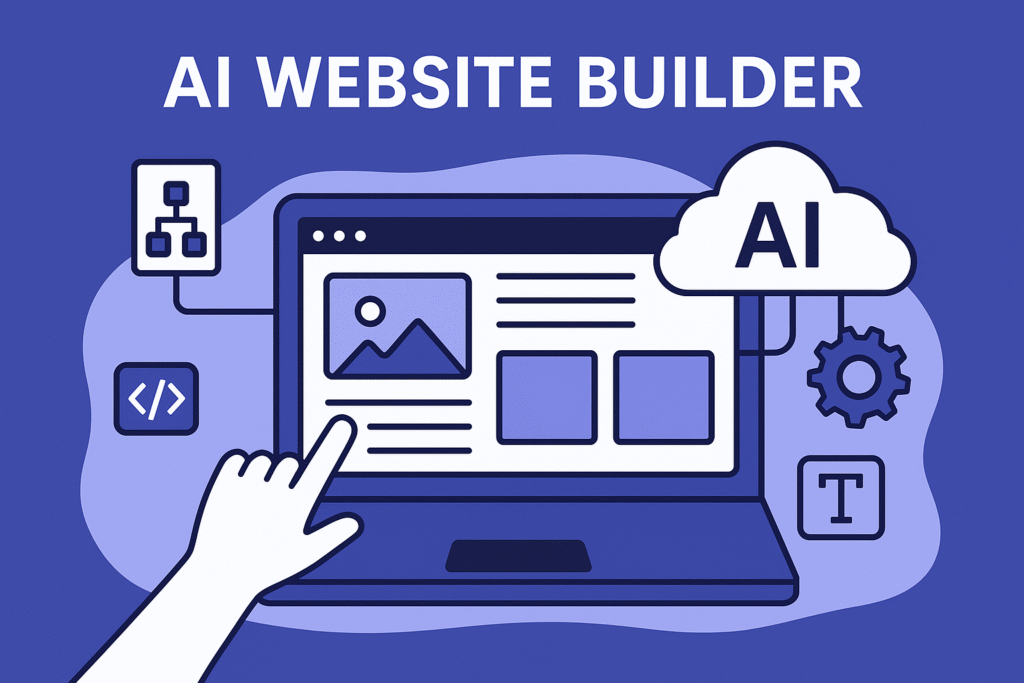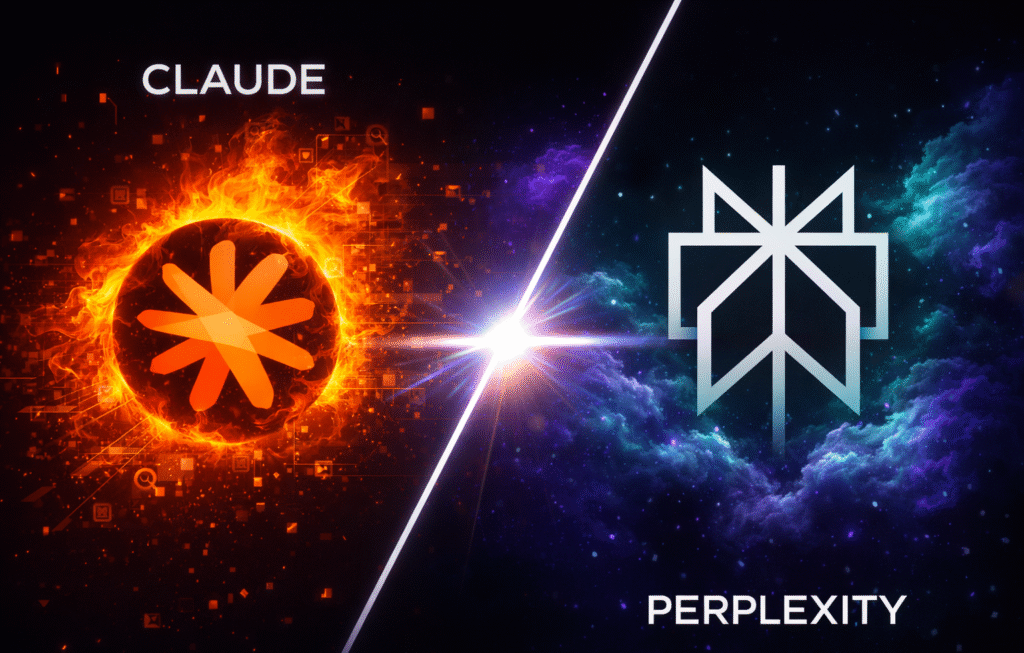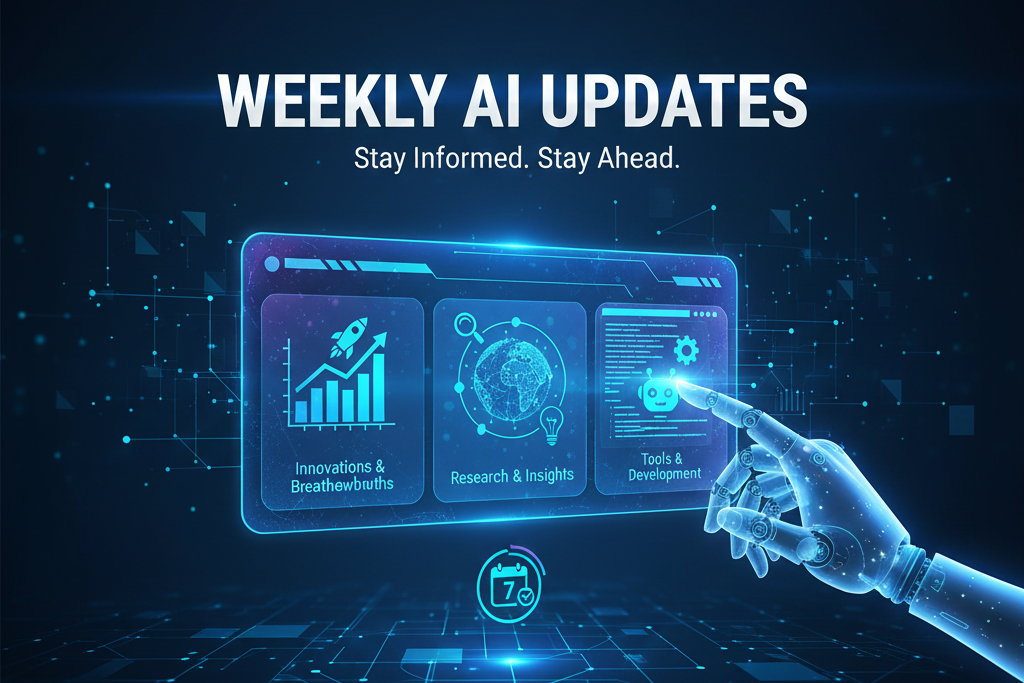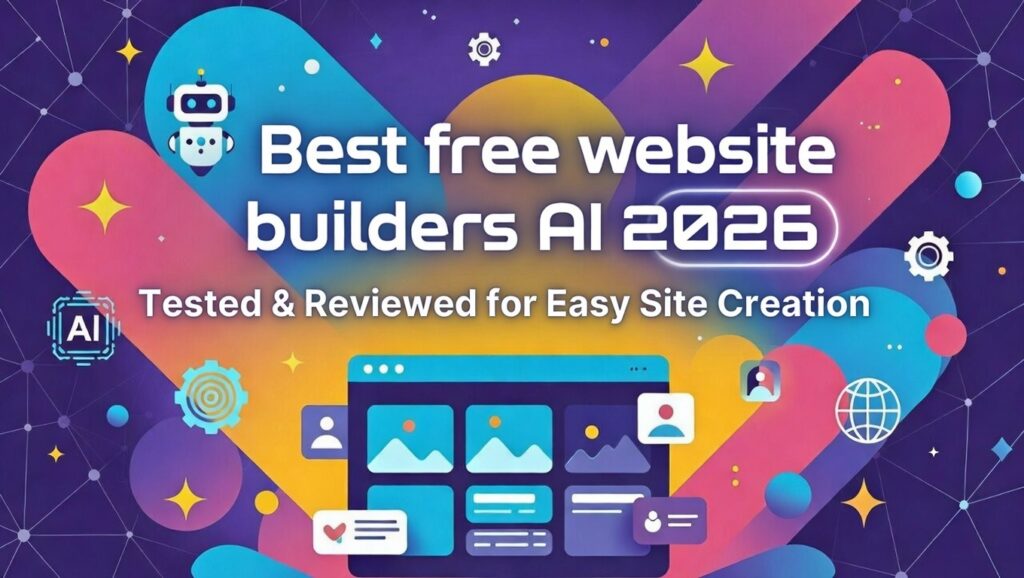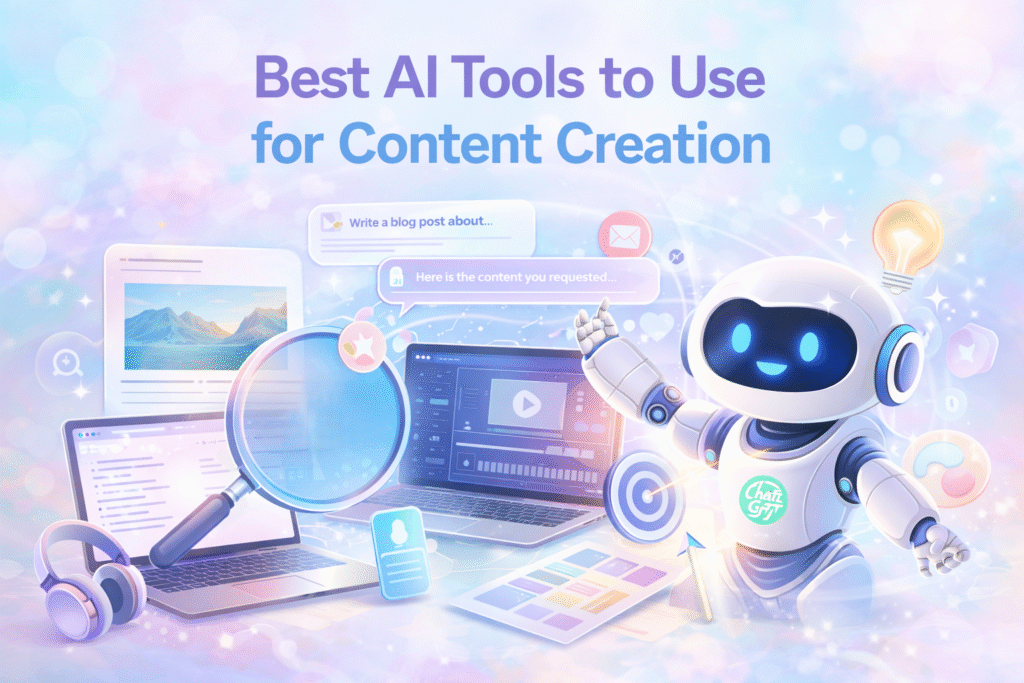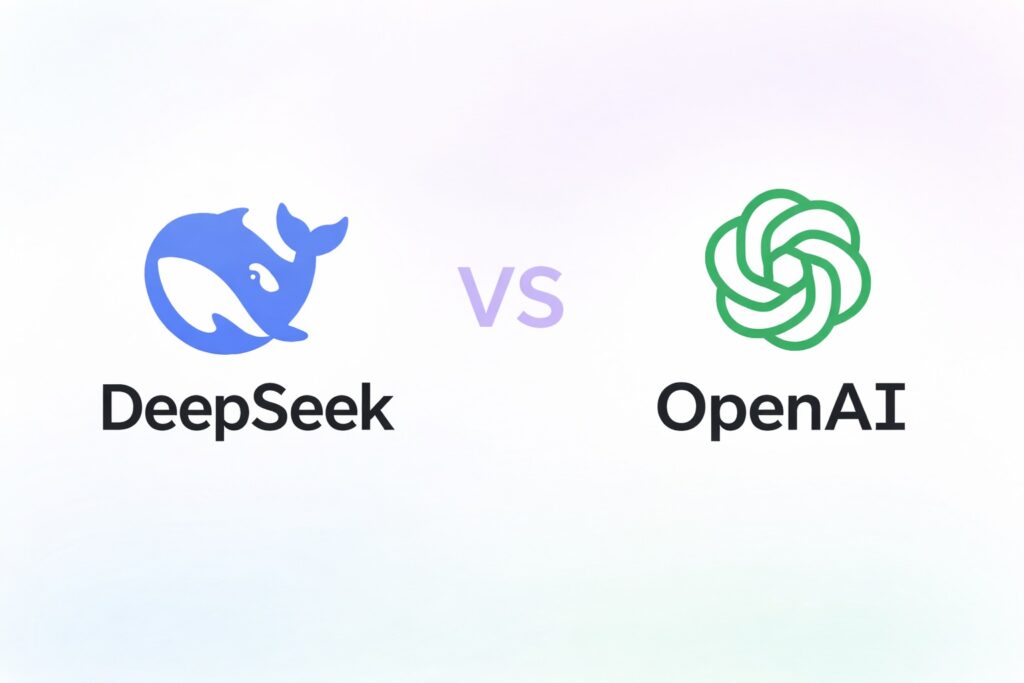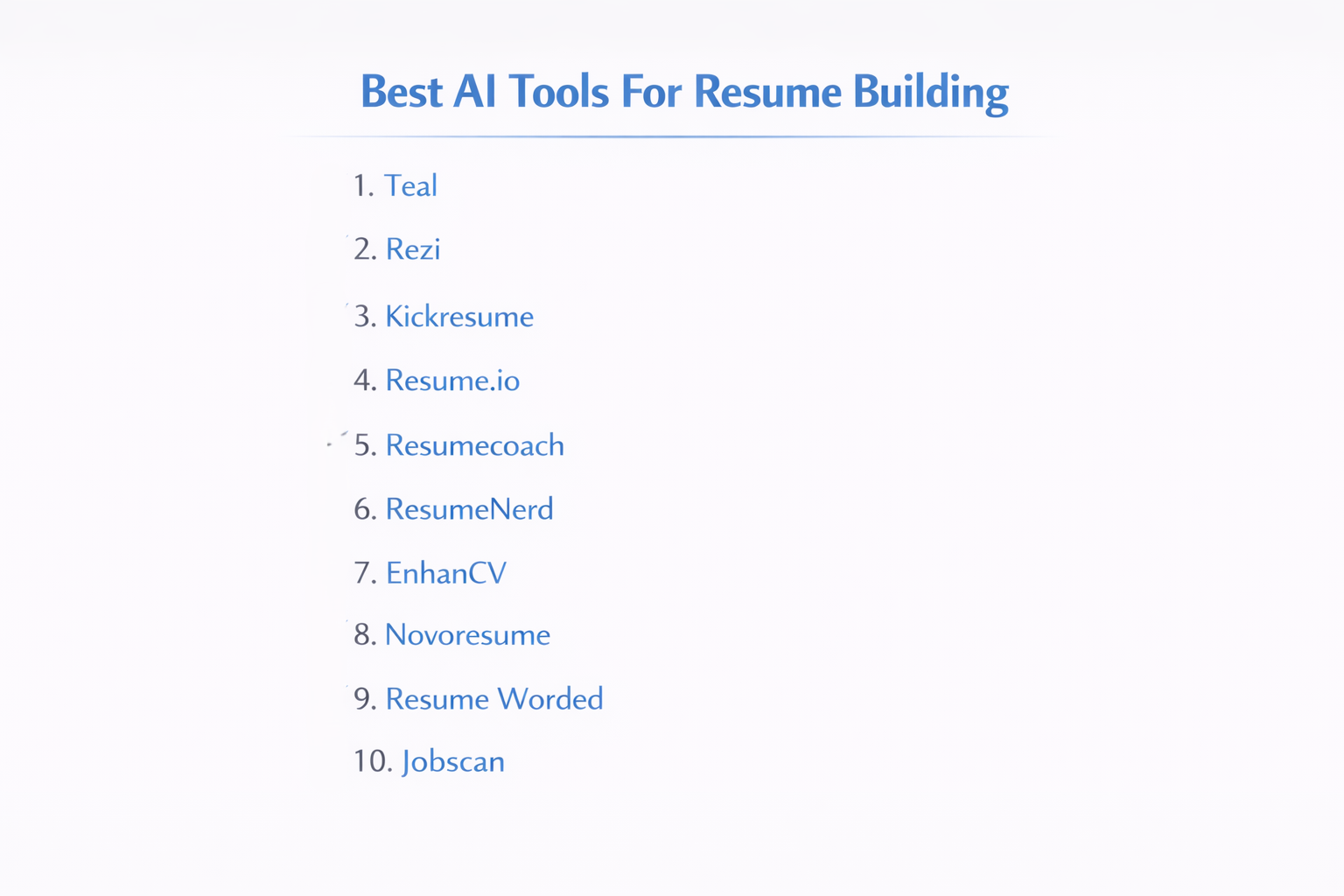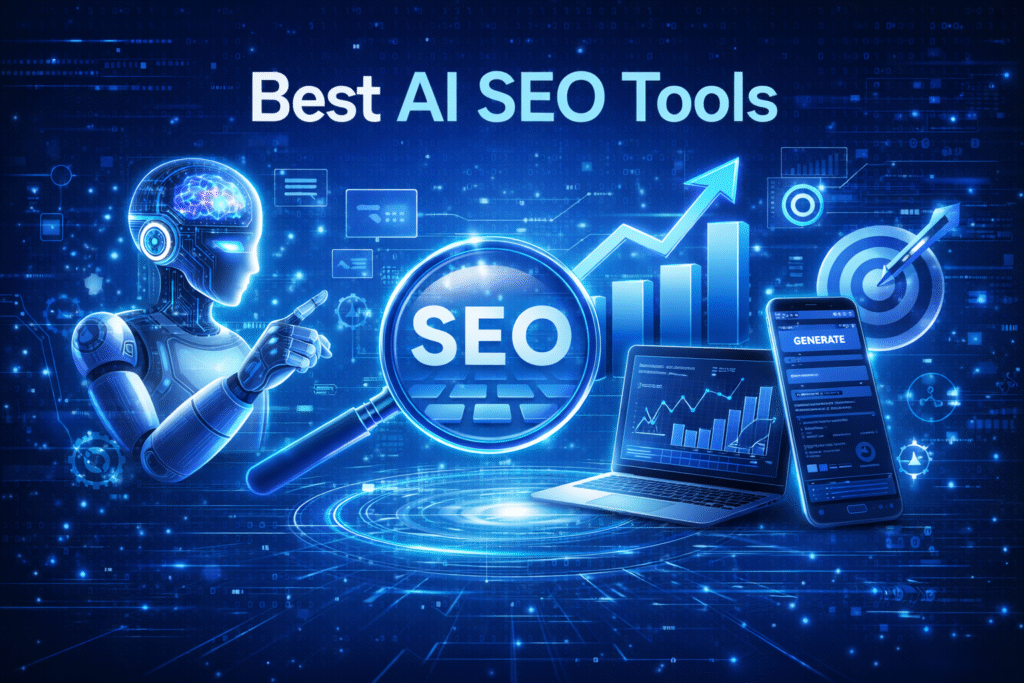If you’re a business owner, you know the struggle of building a website. It’s slow, expensive, and complicated.
I’ve been in the industry for years, and I’ve seen countless entrepreneurs stuck because they can’t launch their website. Some rely on freelancers, some try drag-and-drop tools, and some just keep delaying because building a website feels overwhelming.
Then AI website builders arrived, and they’re a game-changer if you understand how to use them properly.
In this blog post, I’ll share everything about AI website builders and the best AI website building tools.
What Is an AI Website Builder?
An AI website builder is a tool that uses artificial intelligence to create websites automatically.
Instead of manually designing each page, choosing layouts, dragging buttons, and writing content, you have to answer a few questions, like:
- Which industry are you in?
- What type of website do you want?
- Do you need bookings, forms, or e-commerce?
Then, within minutes, AI Website Builder generates a website with a ready-to-use design, pre-written content, mobile-friendly layouts, images, and branding elements.
How AI Website Builders Work?
AI website builders use a mix of:
1. Machine Learning (ML): They learn patterns from thousands of website designs.
2. Natural Language Processing (NLP): They understand what you want when you describe your business.
3. Generative AI: They create content, layouts, and UI elements automatically.
When you answer the initial prompts, the AI interprets your needs, matches them with design structures, and creates a website that fits your industry.
AI Website Builder vs. Traditional Drag-and-Drop Builder. How are they different?
AI website builders automate the entire setup, while drag-and-drop tools require manual design and content creation. The main difference is speed, effort, and how much work you need to do yourself.
| Traditional Builder | AI Website Builder |
| You start with a blank canvas or template. | Auto-generates everything |
| You drag elements yourself. | Content is written according to your industry. |
| You manually write all content. | Colors and layout are optimized based on your brand. |
| You need to understand what looks professional. | You can regenerate sections unlimited times. |
| Small mistakes can break layouts. | You get a polished site faster. |
The Technology Behind AI Website Builder
AI builders use machine learning and natural language processing to understand your business needs and instantly turn them into a ready-to-use website.
- AI analyzes your input – industry, purpose, brand style
- Matches it with its design database – best layouts that perform well
- Generates responsive pages – tablet, mobile, and desktop-friendly
- Creates content dynamically – homepage copy, about section, service pages
- Optimizes SEO basics – meta titles, tags, headers
- Produces visuals – AI images, icons, branding elements
Best AI Website Builder Tools
Several AI builders stand out for their speed, design quality, and ease of use, each offering unique features depending on your business needs.
1. Wix AI Website Builder
Wix AI website builder uses a conversational AI interface to build a website based on answers you provide about your business, industry, and goals.
The system then generates layouts, images, and content in minutes, and you can refine it further using Wix’s drag-and-drop editor. It appeals to users who want a fast website creation process, with built-in design and content support, but want flexibility to tweak designs manually.
| Pros | Cons |
| 1. Broad feature set (AI chatbot, templates, full website build) including a free plan. | 1. Can be slow, especially during editing and customization. |
| 2. Strong customization via drag-and-drop editor. | 2. Difficult to use because of many features. |
| 3. Large ecosystem + many templates. | 3. Costs rise if you go premium, and the free plan has limitations. |
2. Hostinger AI Website Builder
This tool asks you about your website type (blog, store, business site) and description, then generates a fully functional website including layout, content, and branding elements.
You can use its drag-and-drop editor and AI tools like logo creation, image generation, heatmaps, and SEO optimization. It’s targeted at beginners and small businesses, especially those who want an all-in-one hosting plus website builder combo with minimal design effort.
| Pros | Cons |
| 1. Very affordable. | 1. Limited customization and fewer integrations (app store lacking). |
| 2. Simple, beginner-friendly interface with AI tools (writer, logo, heatmap). | 2. Not ideal for larger or more complex sites (scalability issues). |
| 3. Mobile-friendly design and a good set of templates. | 3. Switching templates after building may not be allowed or hard. |
3. Squarespace AI Website Builder
Squarespace, branded as “Blueprint AI”. In this tool, you answer a series of questions about your business and brand personality, and the AI suggests layouts, palettes, fonts, content, and images that align with your responses.
Once the website is generated, you still have full access to Squarespace’s standard editing toolkit. It is geared toward users who want a polished, design-forward start to their website, with strong aesthetics and built-in brand coherence.
| Pros | Cons |
| 1. Excellent design-centric templates and clean aesthetics. | 1. Customization and flexibility are limited compared to other builders. |
| 2. Easy for beginners–intuitive interface. | 2. Less suited for large-scale ecommerce or heavy traffic sites. |
| 3. Built-in AI features to assist with content and layout generation. | 3. Premium cost relative to basic sites, fewer free options. |
4. Durable AI Website Builder
This platform promises extremely fast website creation (in seconds/minutes) using AI for layout, content, and basic site setup. Beyond just the website builder, it also provides business-centred tools like CRM, invoicing, and contact management.
It suits solopreneurs or small businesses wanting a quick online presence plus business workflow tools.
| Pros | Cons |
| 1. Very fast site creation via AI (quick setup). | 1. Fewer customization options, output can be generic. |
| 2. Built-in business tools beyond the site (marketing, CRM). | 2. Integrations and advanced features are less mature. |
| 3. Good for small businesses that need a simple, ready-to-run site. | 3. Pricing may not reflect limited flexibility for advanced users. |
5. Butternut AI Website Builder
Butternut AI focuses on rapid “text-to-website” generation. You describe your business, and the AI builds a multi-page responsive site with images, copy, layouts, and built-in SEO optimization.
It aims to simplify the process further for users with minimal design skills. It’s designed for speed and ease, especially for businesses that want to launch quickly without much manual setup.
| Pros | Cons |
| 1. Extremely fast generation of whole websites from a prompt. | 1. Editing/refinement required, initial AI output not perfect. |
| 2. Easy to use, minimal/no coding needed. | 2. E-commerce and advanced site features are limited. |
| 3. Built-in SEO, layout, and multi-page generation. | 3. Because it’s newer, less proven track record and fewer integrations. |
6. Replit AI
Replit AI is a browser-based development environment with integrated AI assistance. It’s designed to build apps and websites quickly using prompts and code generation, real-time collaboration, deployment, hosting, and more.
| Pros | Cons |
| 1. Very easy sign-up and free plan available — you can start without a credit card. | 1. Free plan and usage limits restrict bigger projects; credits run out fast. |
| 2. Intuitive AI-powered project creation and one-click deployment. | 2. Struggles with complex architectures: the AI can generate code, but errors and manual fixes are common. |
| 3. Supports real-time collaboration and full-stack environment in one place. | 3. Interface and UI output not as polished for design-first tasks; more technical than pure website builder. |
7. Relume AI Website Builder
Relume AI is focused on design-driven website creation: you give it a project brief, and it generates sitemaps, wireframes, and even component-based layouts (for Figma/Webflow) using a library of 1,000+ human-designed components.
It’s aimed at designers, agencies, or anyone building custom marketing websites.
| Pros | Cons |
| 1. Huge library of 1,000+ human-designed components. | 1. Higher price point compared to simpler builders, especially for small users. |
| 2. Seamless integration with Figma & Webflow, enabling export and workflow continuity. | 2. Some components reportedly have functionality issues (bugs, inconsistent behaviour). |
| 3. Fast generation of wireframes & sitemaps, saving significant time at project kick-off. | 3. Requires some familiarity with design tools (Figma/Webflow), less suitable for beginners. |
Advantages of Using an AI Website Builder
These tools save time, money, and effort by generating designs, content, and structure automatically, making website creation accessible to everyone.
1. Cost Saving – No need for a web developer, designer, or content writer.
2. Extremely Fast – Creates a live website in less than an hour.
3. Beginner Friendly – Anyone can use it.
4. Best for Small Businesses – For service businesses, the results are more than sufficient.
5. Continuous Improvements – AI keeps learning and gives you better suggestions every time.
Limitations of AI Website Builders
AI builders are fast but not perfect. They struggle with advanced customization, unique branding needs, and highly specialized features.
1. Not ideal for highly customized websites
If you need complex features (custom dashboards, user accounts, apps), AI builders can’t handle that yet.
2. The content can feel generic
You’ll probably need to refine the text to match your brand voice.
3. Limited creative freedom
Deep customizations may be restricted in their layout..
4. SEO is basic
AI handles the basics, but you still need a long-term SEO strategy.
5. E-commerce limitations
Large stores should consider more robust platforms.
Who Should Choose AI Website Builders?
AI builders are ideal for startups, small businesses, solo entrepreneurs, and anyone who wants a clean, professional website without technical skills.
1. Startups with a low budget
Hiring a designer and developer easily costs ₹30,000 – ₹2,00,000. AI builders cut that down.
2. Small or New Businesses
If you are a small business and need a website urgently, an AI website builder solves the problem.
3. Non-tech-savvy entrepreneurs
If you don’t want to learn coding, design, or SEO.
4. Service providers
Coaches, agencies, salons, clinics, freelancers. An AI website builder can generate industry-specific websites.
5. E-commerce beginners
You can launch a store without touching complicated backend setups.
How to Choose the Best AI Website Builder?
Selecting the right tool depends on your goals, required features, budget, and how much control you want over the final design.
1. Start with Your Goal – What Do You Want the Website to Do?
- Do you need a simple business website?
- Do you want to sell products online?
- Do you need booking features (salon, clinic, coaching)?
2. Check the Editing Flexibility
- Can you manually adjust the layout?
- Can you change text, colors, images, and fonts?
- Can you add new sections?
- Does the tool restrict advanced customizations?
3. Check SEO Features
- Custom meta titles and descriptions
- Alt text for images
- Mobile responsiveness
- Clean URL structure
- Fast loading speed
- Blog feature
4. Look for Built-in Integrations
- Payment gateways
- Google Analytics
- Email marketing tools (Mailchimp, ConvertKit, HubSpot)
- CRM systems
- Booking tools
- Popup and form builders
5. Test Before Buying
- Generate a sample site
- Test editing tools
- Check integrations
- Evaluate loading speed
Key Takeaways
| AI website builders are fast, affordable, and beginner-friendly. They create full websites with content, design, and structure. They’re ideal for small businesses, startups, and service providers. They’re not perfect for highly customized or enterprise-level sites. Choosing the right tool depends on your goals and required features. |
Final Thoughts
AI website builders cannot replace professional developers completely, but they help in creating a website for every business owner.
If your goal is to get online quickly, look professional, and avoid spending huge amounts on web development, AI is more than enough.
Remember, AI gives you the base, your brand personality, story, and content tweaks still matter.
FAQs
1. Are AI website builders good for small businesses?
Yes. They provide fast, affordable, and professional websites with minimal effort.
2. Can AI create a full website automatically?
Yes. It can generate layouts, content, images, and basic SEO setup within minutes.
3. Are these websites mobile-friendly?
Absolutely. Modern AI builders design responsive websites automatically.
4. Do I still need SEO after using an AI builder?
Yes. AI handles basics, but long-term SEO requires strategy, blogs, backlinks, and optimization.
5. Can AI website builders handle e-commerce?
Some can, but they work best for small to medium stores, not large or complex ones.
6. What if I want to customize the website later?
Most AI builders allow manual editing after the initial AI generation.
Suggested Blogs:
